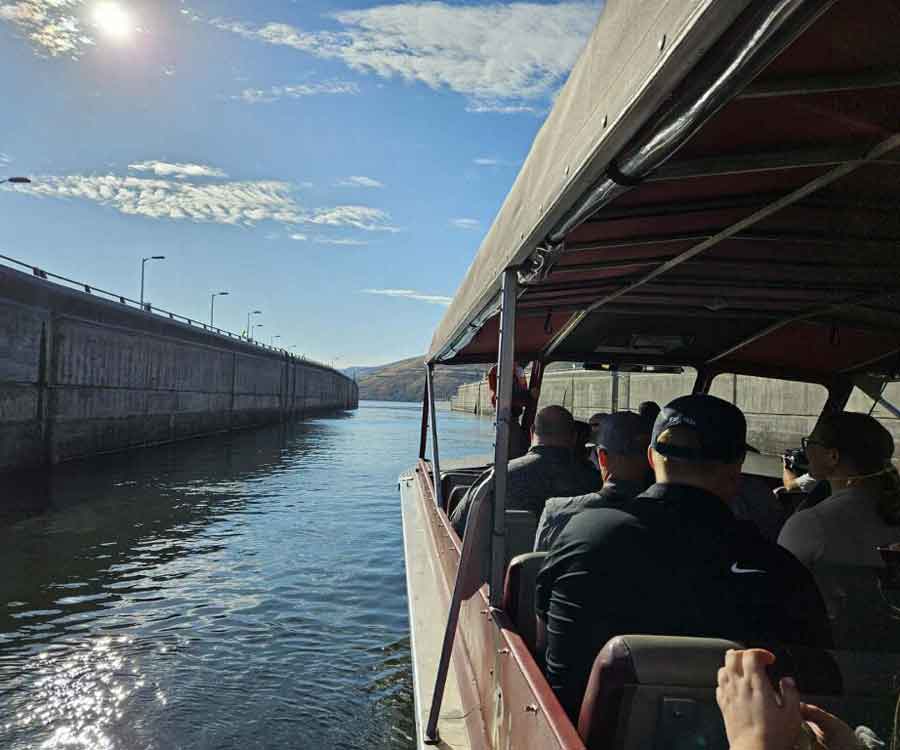
Stirring up a conversation to impact those beyond the kitchen – that was the meat and potatoes of the Snake River Legislative Fly-In in Lewiston, Idaho, which was attended by the Upper Mississippi Waterway Association in August.
“Educating and learning about the importance of these marine highways for the security, resiliency, power generation and reliability of the U.S. transportation grid is terribly important,” said Gary Williams, UMWA executive director. “Being invited to learn and echo the need to preserve and maintain these corridors was an endeavor well worth doing”.
Williams joined the Washington Association of Wheat Growers (WAWG), in partnership with the Washington State Potato Commission, The McGregor Company and Northwest RiverPartners, for a tour with more than a dozen U.S. congressional staffers from Washington, D.C., as well as the region’s district offices for the event.
The tour included a boat ride through Lower Granite Dam lock and a tour of the facility, a tour of the Port of Lewiston and a panel of Marine Highway 84 users sharing their perspectives on the importance of the dams for the region as well as the rest of the country. Organizers say it set the stage for future congressional river tours.
“Touring Lower Granite dam and passing through the lock let staffers see how efficient and reliable the system is for power generation, transportation and irrigation. We are looking forward to next year’s tour,” said WAWG Executive Director Michelle Hennings.
Attendees also witnessed the state-of-the-art fish passage system and how researchers are working to increase fish numbers. The group heard river users from throughout the system explain how critical M-84 is locally, regionally and nationally.
The meeting comes about two months after UMWA hosted a tour down the Mississippi River in late June, during which Snake-Columbia River stakeholders stressed the dangers of breaching the dams. Both groups committed to long-term collaboration with a common goal of strengthening the voice of the river system.
“Spending a day seeing rather than just hearing really cements all the work being done to preserve and increase populations of salmon on the Snake River,” Williams said. “Having real data and understanding the science of actual outcomes on the Snake and Columbia River is really important for the American public to know and understand.”
Williams says the work doesn’t stop here and the collaboration must continue in order to ensure the integrity of the country’s waterways.
“One couldn’t miss the stark message that the risks of decisions being made for our river systems that exclude key important stakeholders that hold key facts is a road to disaster,” Williams said. “The Snake River situation is a warning beacon to all of us that represent and work on these working waterways of how dramatic, quick and disastrous these types of decisions could be to a system of arteries for our nation when such exclusion takes place.”
